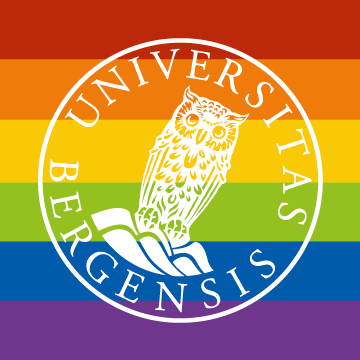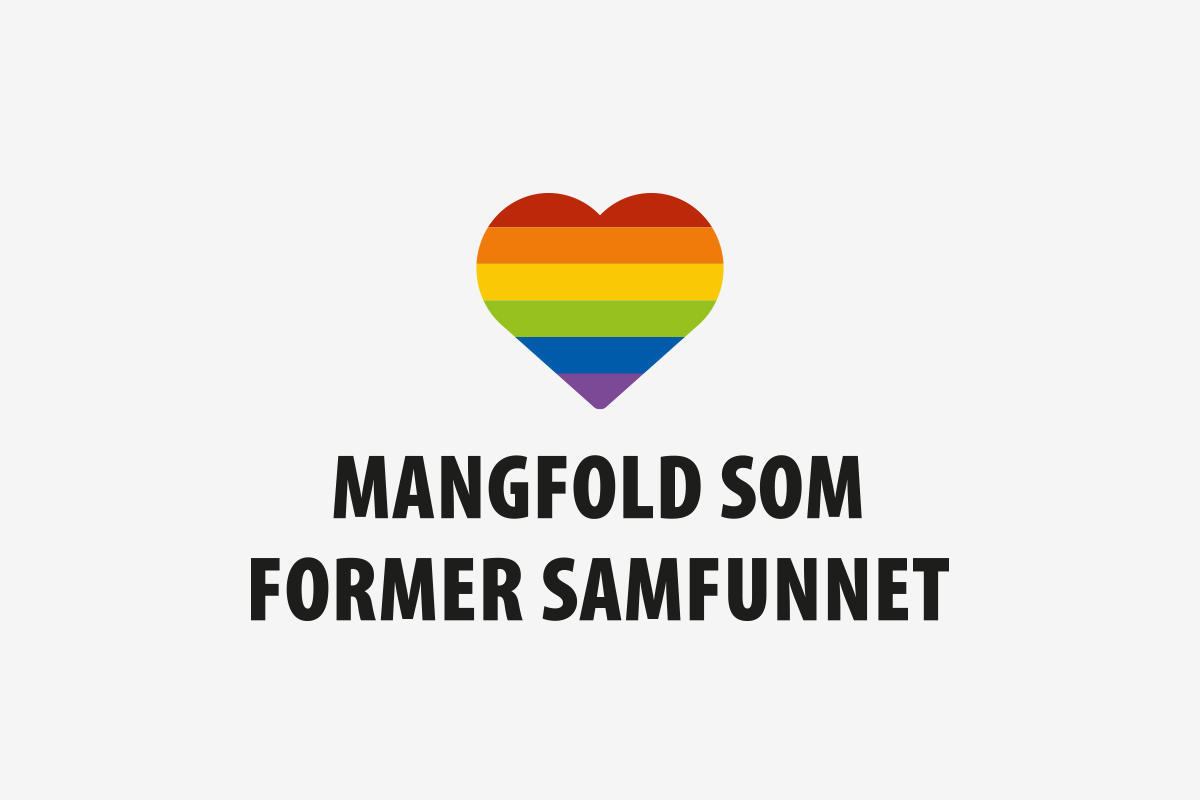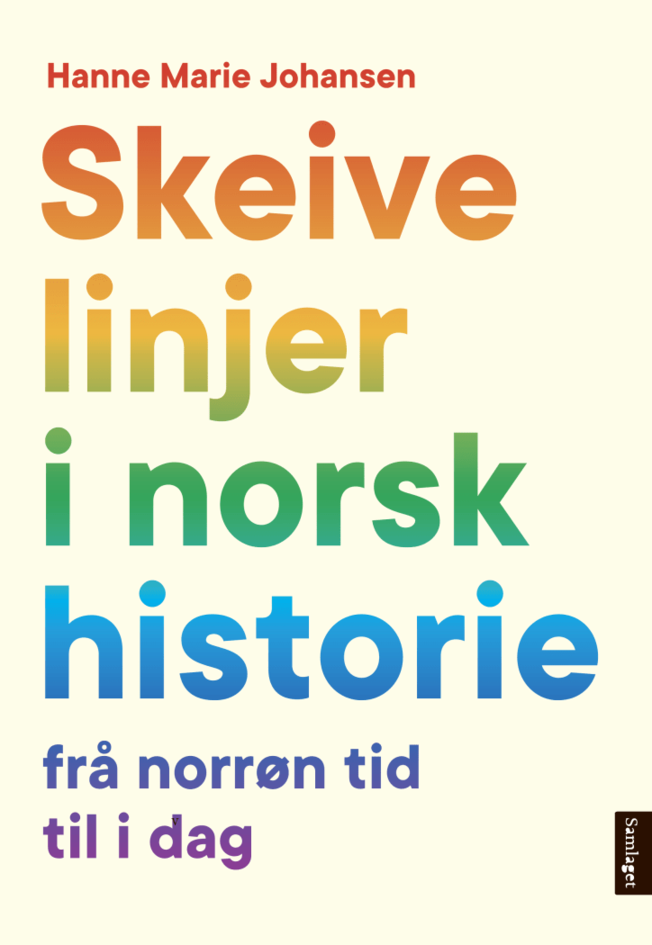Queer perspectives at SKOK
Pride 2020 is upon us, and in the Centre for Women's and Gender Research's (SKOK) research and teaching, you can find many exciting perspectives related to this year’s programme.

Main content
Even if Bergen Pride looks different this year due to the pandemic, it will still be duly celebrated as a digital festival from 4 to 6 June. The theme is “From Lockdown to Lovedown," and is described like this:
While lockdown meant distance and loneliness, our lovedown will offer you community, knowledge, entertainment and love directly from our pride studio to where you are!
Queer perspectives are included in the basic understanding of how we think about gender in the Center for Women's and Gender Research's (SKOK) research and teaching, and an insight into the center’s work can thus give an extra dimension to the knowledge part of the Pride programme this year.
Queer history research
On Wednesday 4 and Friday 6 June, Bergen Pride presents two lectures about Bergen’s queer history, and if you want to learn more about queerness in Norwegian history from the Viking age until today, you can read Hanne Marie Johansen’s book on this topic. Johansen is associate professor in humanistic gender research at SKOK, and before she wrote her book, there was no collected history of queerness in Norway.
Book about queer history in Norway created debate
Central questions in the book are how the breaking of norms for gender and sexuality have been viewed during different periods, and which causal explanations have dominated. The book received good reviews in Forskerforum (the journal for the Norwegian Association of Researchers) in and the Journal for Gender Research in Norway. Johansen also started a debate in Norwegian newspaper Klassekampen in June 2019 with her opinion piece The police recognizes wrongdoing towards gay people. Now it’s the church’s turn! (title translated from Norwegian). Both theologians and representatives for the National Council of the Church of Norway participated in the debate.
Transsexualism in a historical perspective
Research assistant at SKOK, Sigrid Sandal, also has a novel contribution to historical research with her master’s thesis about transsexualism from 2017. Her thesis examines how Norwegian doctors, lawyers and the Norwegian Directorate of Health have thought about and treated genuine transvestism/transsexuality from 1952 to 1928, and it was awarded the Norwegian Archive for Queer History’s (Skeivt Arkiv) master scholarship in 2016. Before the publication of this thesis, hardly any research had been done on historical transsexualism in Norway. In 2019, Sandal presented her thesis at one of Skeivt Arkiv’s OUTing the Past events. A specific perspective on trans themes is also on Bergen Pride's programme this year through the showing of the documentary short “Coming out – searching for freedom” – a film about the Lebanese trans woman Jija.
Anti-genderism on the rise
According to Bergen Pride’s programme, a conversation will be held on 4 June about the situation for LGBTQI+ people in Poland, which is steadily worsening. In Central and Eastern Europe, anti-genderism is on the rise, which among other things manifests itself in attacks on queer people and their rights, as well as resistance towards gender research and studies.
SKOK professor about anti-genderism
Professor at SKOK, Randi Gressgård, touches upon anti-genderism in her essay Political correctness, identity politics and freedom of speech in Norwegian Journal for Social Science Research (title translated from Norwegian). Gressgård is also co-editor of a special issue of the journal Intersections: East European Journal of Society and Politics (IEEJSP) with the theme "Struggles over Europe: Post-colonial East/West dynamics of race, gender and sexuality." In this issue, forthcoming this September, she contributes with two articles, co-authored with Rafał Smoczynski og Nadya Husakouskaya, that both address anti-genderism in (among other countries) Poland. In several of Gressgård’s previous publications, one can find themes like asexuality, transsexualism and islam and homosexuality.
Queer perspectives in other SKOK researchers’ work
Gressgård is also advisor for Dinara Yangeldina, who is writing her PhD thesis at SKOK about how intersectional feminist discourses move across national borders and how they get used, transformed and appropriated in Russian-speaking feminist online spaces. In her master thesis in gender studies from Central European University, Yangeldina wrote about digital moral activism and anti-LHBTQI+ activism in Russian-language media.
Co-advisor for Yangeldina at SKOK, Redi Koobak, has also explored queer perspectives in her research. Her PhD thesis from 2013, Whirling Stories: Postsocialist Feminist Imaginaries and the Visual Arts, looks at the role of visual arts in conceiving and reconfiguring postsocialist feminist imaginaries by focusing on the deeply personal and political artwork of a contemporary feminist and lesbian-identified Estonian artist, Anna-Stina Treumund. Sadly, the artist passed away in 2017, and Koobak wrote an eulogy about her the same year. More recently, Koobak published a chapter on her thesis in the volume “Borderlands in European Gender Studies. Beyond the East-West Frontier” (2019).
Queer perspectives in SKOK's teaching
At SKOK, students are met with queer perspectives as one of the first subjects taught in the introductory course, and these are also continued throughout the other courses in the bachelor’s degree and the one-year course. In addition, the students at KVIK101 - Gender in Modernity - have this year been asked to write a paper where they discuss the strength and weaknesses of SAIH’s 2020 campaign about the anti-gender movement and subsequent attacks on academic freedom; the Domino Effect. Queer history is also included in the course KVIK 102 - Equality and diversity, and Johansen's aforementioned book is on the reading list.



